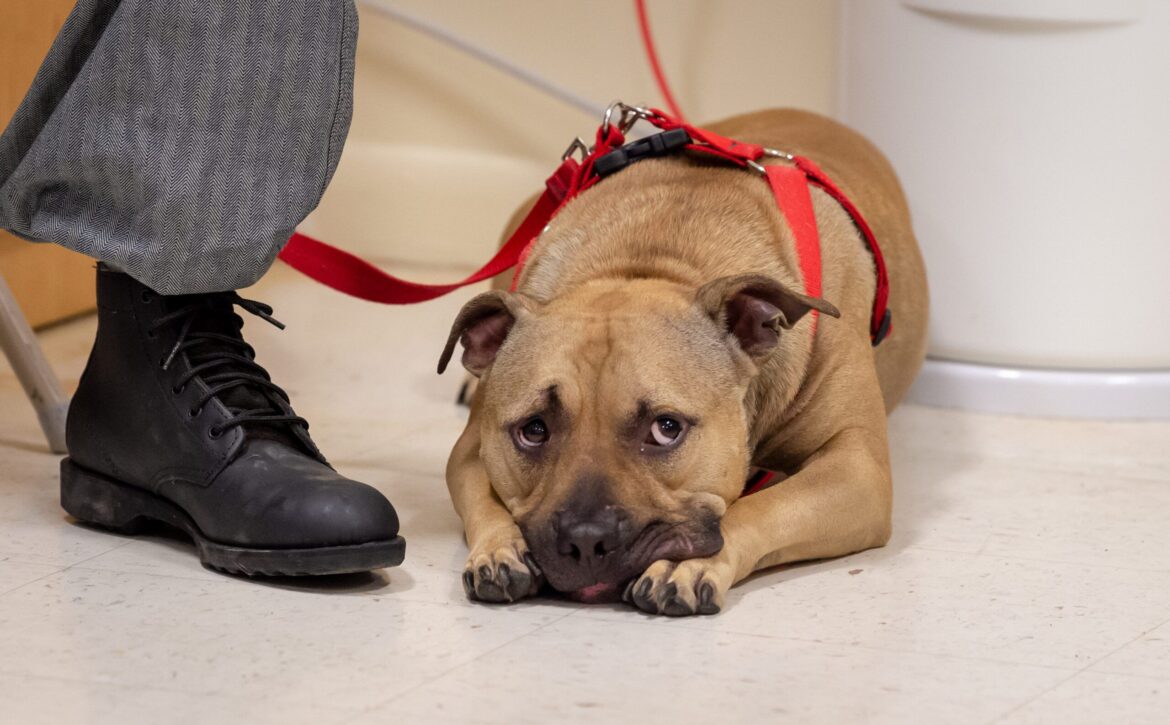Stomach cancer is rare in dogs, accounting for less than 1% of all cancers diagnosed in our canine companions. This form of cancer tends to occur in older dogs and affects male dogs more often than female dogs. Although any breed of dog can be affected, stomach cancer is most commonly seen in Chow Chows, Rough Collies, Staffordshire Terriers, and Belgian Shepherds.
Symptoms of stomach cancer in dogs
Symptoms of stomach cancer include vomiting, nausea, weight loss, and decreased appetite. Some dogs may vomit blood or their vomit may look like coffee grounds. Other dogs may have black, tarry stools. Dogs with stomach cancer rarely have a bloated stomach, unless the cancer has spread to other areas of the abdomen.
Unlike other forms of cancer where there may be one or more masses or tumors, stomach cancer tends to cause focal or diffuse thickening of the stomach wall. This makes stomach cancer difficult to diagnose with routine imaging, such as study x-rays (x-rays).
Abdominal ultrasound performed by an attending radiologist can be helpful in identifying areas of the stomach wall that are thickened and therefore suspicious for stomach cancer. Confirming a diagnosis of stomach cancer requires obtaining biopsy samples from the affected areas of the stomach.
Biopsy samples can be obtained with a minimally invasive procedure called endoscopy. Endoscopy is usually performed by a veterinary internist, also known as an internal medicine specialist. Your dog will need to be briefly anesthetized for this procedure.
During an endoscopy, the internist passes a thin tube with a camera and a light on the end down your dog’s throat and esophagus and into its stomach. This allows him to examine the innermost lining of your stomach, called the mucosa. When he sees an abnormal region of the mucosa, he can obtain a small biopsy sample using a special grasping tool.
Some forms of stomach cancer affect only the middle layer of the stomach wall and not the mucosa. When this is the case, your dog’s entire stomach lining may appear normal on endoscopy. If stomach cancer is still suspected but endoscopy findings are normal, then surgical exploration to obtain biopsy samples may be recommended.
A surgical scan is a procedure in which a surgeon makes an incision in your dog’s abdomen (under anesthesia, of course!) and visually examines each of your dog’s abdominal organs. For a dog suspected of having stomach cancer, the surgeon pays special attention to the stomach and the first section of the small intestine. Areas of the stomach that appear abnormal may be biopsied or removed. Biopsy samples or surgically removed sections of the stomach are sent to a veterinary pathologist for diagnosis.
How long can dogs with stomach cancer live?
There are two general categories of cancer: benign and malignant. Benign tumors tend not to spread to other areas of the body and usually do not recur if they are completely removed. Malignant tumors tend to spread to other areas of the body.
Unfortunately, most stomach tumors in dogs are malignant and have usually metastasized by the time of diagnosis. The prognosis for dogs with malignant stomach cancer is poor, even when treated with chemotherapy after surgical removal of the tumor. Most dogs with malignant stomach cancer live less than six months after diagnosis and treatment.
In contrast, dogs that have a benign stomach tumor that can be surgically removed in its entirety have a good prognosis for life. If it is not removed surgically or if the benign tumor is in a section of the stomach that cannot be easily removed, benign tumors will continue to grow. Benign stomach tumors can grow large enough to interfere with proper stomach function, leading to a dog’s death.
What to feed a dog with stomach cancer
Dogs with stomach cancer need a highly nutritious diet that is easy to digest. Your vet may recommend a prescription canned GI diet, such as Hills i/d, Purina EN, or Royal Canin Gastrointestinal. Canned foods have a higher moisture content than kibble and are easier for the stomach to break down into a mush.
Forecast
Since the prognosis for dogs with stomach cancer is generally poor, your vet can discuss palliative care options with you. Palliative care options include pain relievers, a stomach acid reducer, and an antiemetic (anti-nausea) medication.
Research on this and other forms of cancer in dogs is ongoing all over the world. While the current outlook for stomach cancer in dogs seems bleak, the results of current research may offer a brighter future.

